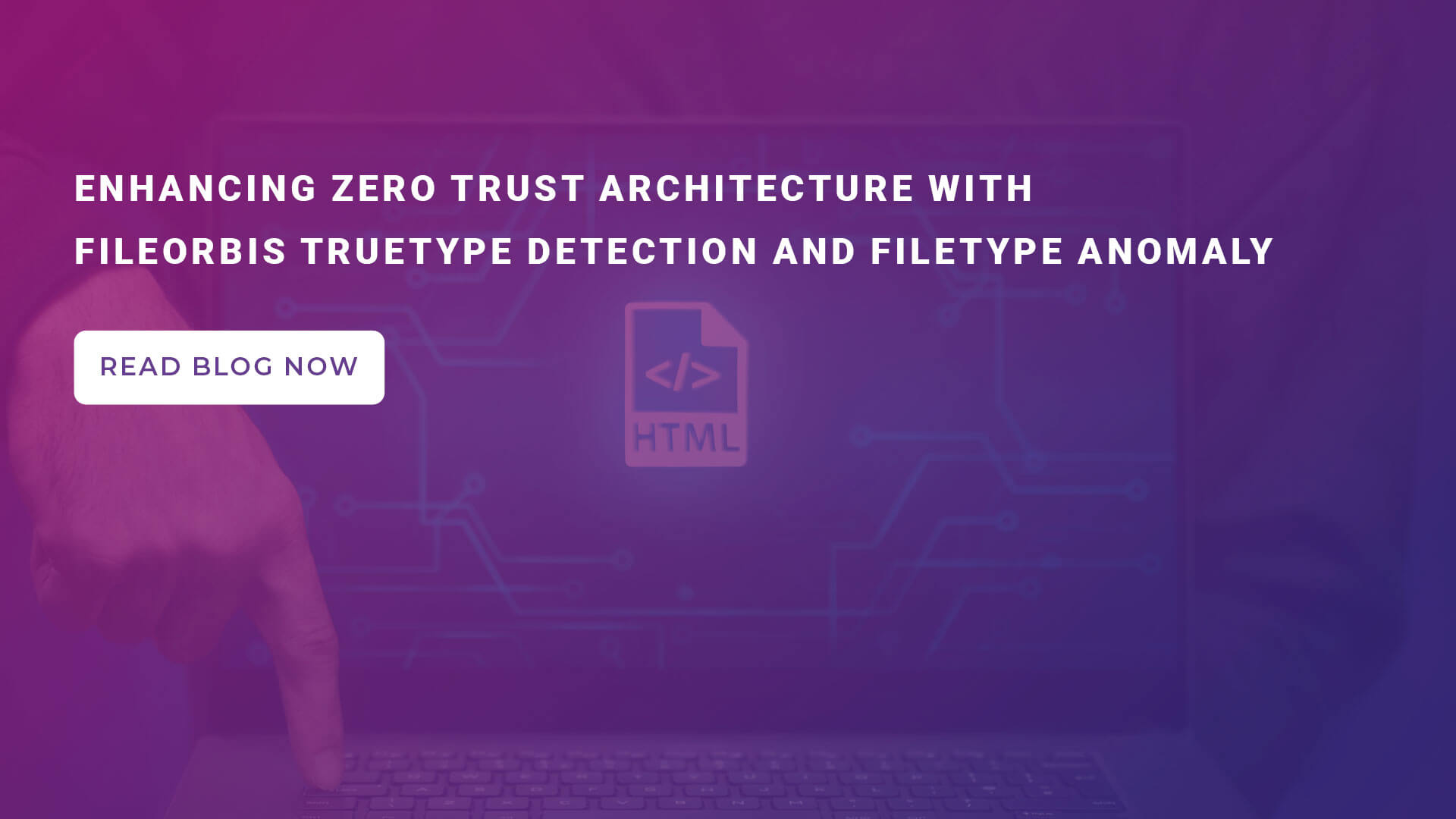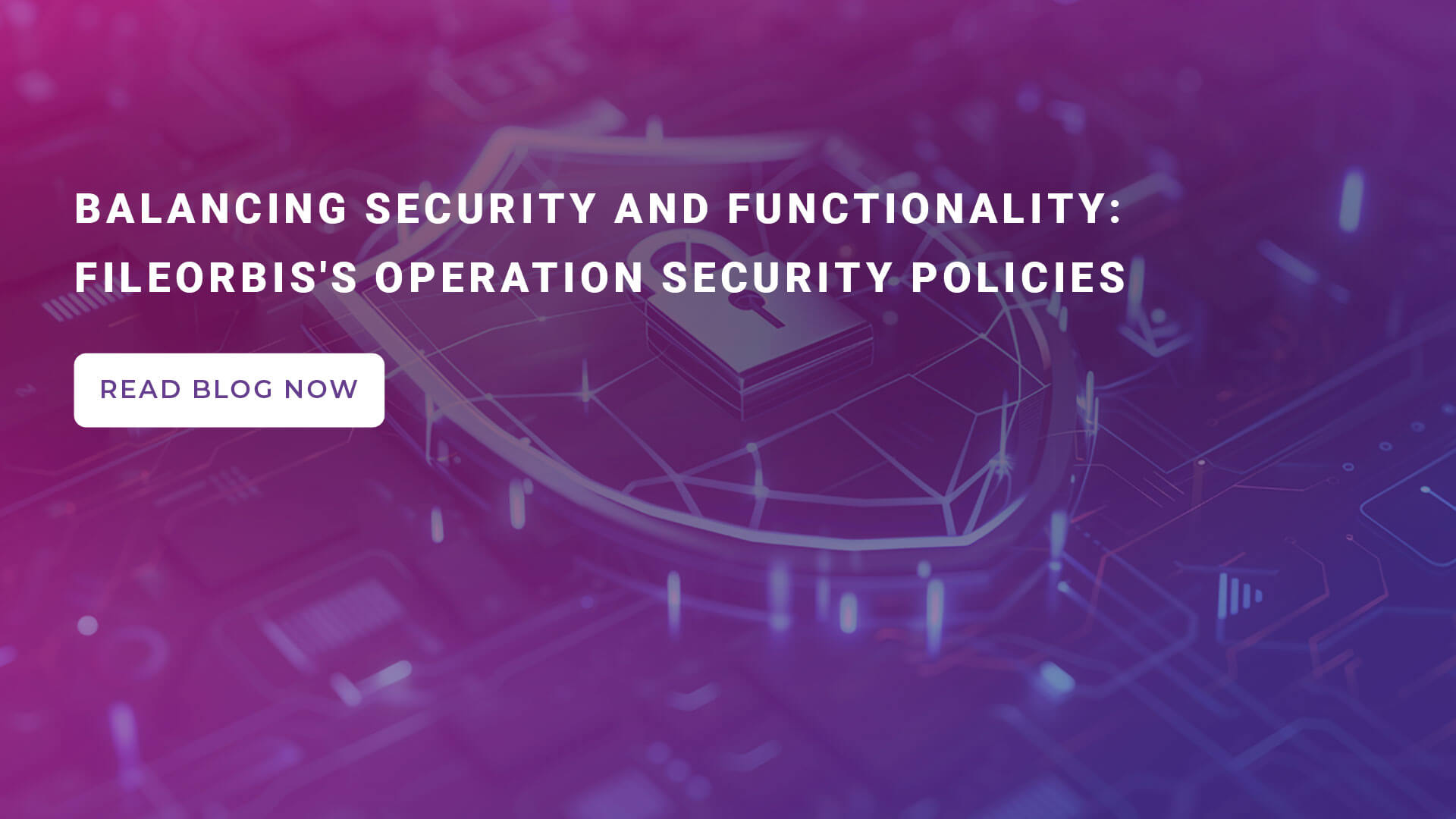
In the evolving landscape of cybersecurity, maintaining a zero trust architecture requires not only vigilance but also advanced technological solutions that can preemptively identify and mitigate risks. FileOrbis leverages sophisticated TrueType Detection and FileType Anomaly technology, known as “FileOrbis FileWall,” to enhance the security and integrity of file management within this stringent framework. This blog explores how FileOrbis employs these capabilities to enforce zero trust principles and ensure secure data management.
Advanced MIME Type Analysis
At the heart of FileOrbis’s security features is its ability to analyze and verify the relationship between a file’s type and its extension name by examining the relevant MIME Type. This technology is crucial for ensuring that files are exactly what they purport to be, preventing mismatches that could potentially hide malicious content. By accurately identifying file types, FileOrbis ensures that only legitimate, safe files are handled, adhering to the zero trust mandate of “never trust, always verify.”
Machine Learning for Enhanced Detection
For files where MIME Type analysis may not be sufficient or applicable, such as text-based files like PHP, HTML, or TXT, FileOrbis utilizes its own machine learning algorithms to determine the file type with a high degree of accuracy. This application of machine learning is part of FileOrbis’s commitment to adapting and evolving its security measures to meet complex challenges and emerging threats within a zero trust framework.
FileOrbis FileWall: Customizable Security Rules
FileOrbis FileWall is not merely a passive security feature; it enables proactive management of file security through customizable rules tailored to specific organizational needs. For instance, rules can be set to prevent the upload of executable files or to restrict the download of RAR files larger than 1 GB. These rules can be finely tuned with filters based on user, extension, time, IP address, and the requested source—whether access is attempted from mobile apps, web interfaces, or APIs. The ability to encrypt files adds an additional layer of security, ensuring comprehensive data protection.
Anomaly Detection and System Integrity
A pivotal aspect of FileOrbis FileWall is its capability to detect anomalies where file types and extension information do not align—signs that a file may be designed to deceive or compromise the system. Such files are automatically blocked, reinforcing the security infrastructure necessary for a robust zero trust architecture. Furthermore, FileOrbis produces detailed reports on these detections, providing invaluable insights into potential security threats and helping organizations to continuously refine their security strategies.
Comprehensive Management of Encrypted and Macro Files
An additional powerful feature of FileOrbis’s FileWall technology is its ability to detect encrypted files and files containing macros. In today’s digital landscape, encrypted files can be double-edged swords—they protect data confidentiality but can also conceal malware or unauthorized content. Similarly, macros, while useful for automating routine tasks, are often exploited to execute malicious scripts.
Customizable Rules for Enhanced Control
With FileOrbis FileWall, administrators have the capability to write specific rules that govern how these potentially risky files are handled. For example, encrypted files and those containing macros can be automatically blocked to prevent them from entering the network environment. Alternatively, these files can be allowed but restricted to certain individuals or groups within the organization who have the appropriate clearance or need to use these features for legitimate purposes.
This level of customization ensures that organizations can balance the need for security with the functional requirements of their teams, adhering to the zero trust principle of minimal privilege. By enabling precise control over who can access and interact with encrypted or macro-enabled files, FileOrbis helps organizations mitigate risks associated with these file types while still leveraging their benefits.
Conclusion: Strengthening Zero Trust with FileOrbis
FileOrbis’s TrueType Detection, FileType Anomaly technologies, and the sophisticated handling of encrypted and macro files play a critical role in strengthening zero trust architectures. By ensuring that every file is exactly what it appears to be, allowing organizations to customize how files are handled based on their true type, and providing advanced controls for encrypted and macro files, FileOrbis not only enhances security but also fosters a safer, more reliable environment for managing sensitive data. Trust nothing, verify everything—FileOrbis embodies this zero trust principle through every file interaction, making it an essential tool for any organization serious about cybersecurity.

Faris Suleiman
Presales Manager, KSA & Egypt
Subscribe to our Newsletter
About FileOrbis
Aiming to manage the user and file relationship within an institutional framework, FileOrbis is constantly being developed in order to meet different industry and customer needs in terms of file management and sharing. Since 2018, FileOrbis continues to be developed with the excitement of the first day. FileOrbis focuses on high security, rich integration, ease of use and integrated management criteria.




